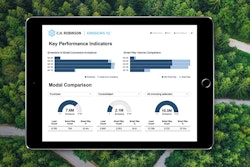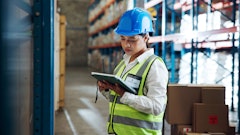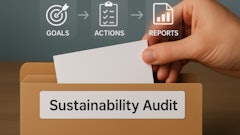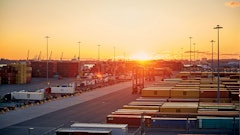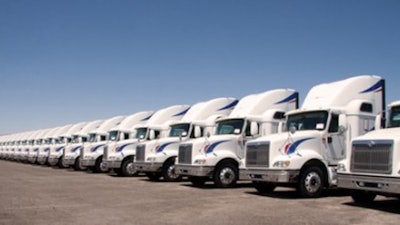
The Coronavirus disease (COVID-19) pandemic has triggered a dramatic e-commerce boom, altering the way companies do business. It has also changed consumer buying experience, shifting the retail landscape.
As retailers benefit from strong consumer demand and a colossal increase in e-commerce orders, more needs to be done to control emissions within supply chains. Increased growth of deliveries is driving up the use of last-mile delivery vehicles due to inefficiencies, resulting in trucks running empty. The transport and logistics sector needs sustainable supply chains not just for corporate governance and operational savings, but also for retaining customers who are becoming more environmentally conscious.
Road to resilience
Those who have innovated their business and operating models to serve the agile supply chains of e-commerce have found themselves ahead of the race during the unsettling times. The role of technology in transport and logistics has evolved significantly over the past decades, but never so quickly or dramatically as in response to COVID-19.
Many operators have taken up route optimization to improve customer experience and reduce carbon footprint. Others have considered the type of fuel they use. E-commerce has put an immense pressure on last-mile logistics with customers placed as top priority. But, what happens when customers don’t quite understand the difference between cheap and fast deliveries to sustainable supply chains?
As operators have raced to deliver order volumes over the Christmas period, the question remains whether cost to service is being covered. Those who can optimize their cost are more likely to reduce their carbon footprint. But, if you’re over servicing, which is what we’re seeing, then a levy such as road user charge or carbon charge might be necessary.
The big challenge
Senior supply chain executives face sustainability issues daily as they look to ensure the organization’s activities are aligned to the expectation of shareholders, including internal and external stakeholders. Having the capability and metrics in place to identify and communicate social, environmental and economic achievements is paramount to embedding sustainability thinking within an organization.
Supply chain strategies should enable businesses to exceed sustainability ambitions across logistics functions, designing solutions that are practical and adaptable to meet environmental goals and targets in line with customer, shareholder and community values and expectations. Some overseas organizations have the added importance of complying with legislative requirements. Setting the right targets is crucial, including making emissions a critical KPI for companies.
The New Normal
As businesses have been forced to adopt new ways of working – from just surviving the pandemic to truly thriving, a learning curve might just become the springboard for 2021. It’s unlikely that the explosion in online shopping and B2C is going away any time soon.
Leading companies need to find ways to become more efficient and adapt to the New Normal; whether it be understanding the cost to service or their logistics profile by expanding from a large warehouse into multiple smaller ones to deliver on time.
Industrial occupiers across Australia have been incorporating sustainable practices in their facilities for a while now, which is driving green initiatives in the industrial property market. Many have been investing in solar panels and water recycling plants, among other environmental-friendly initiatives in industrial property, which is ultimately reducing carbon emissions.
As the pandemic has pushed the industry ahead by around five years, turbocharging the growth of online retail, now is the time to take charge of sustainable supply chains.
Concerns for shoppers
According to Australia Post’s 2020 eCommerce Industry Report, the key concerns for online shoppers are sustainable packaging and delivery, returns policies and processes and additional costs such as shipping, taxes and duties. Almost half of the respondents want recyclable packaging, and nearly 30% prefer carbon-neutral delivery. Some 28% are willing to wait longer for delivery to reduce environmental impact.





